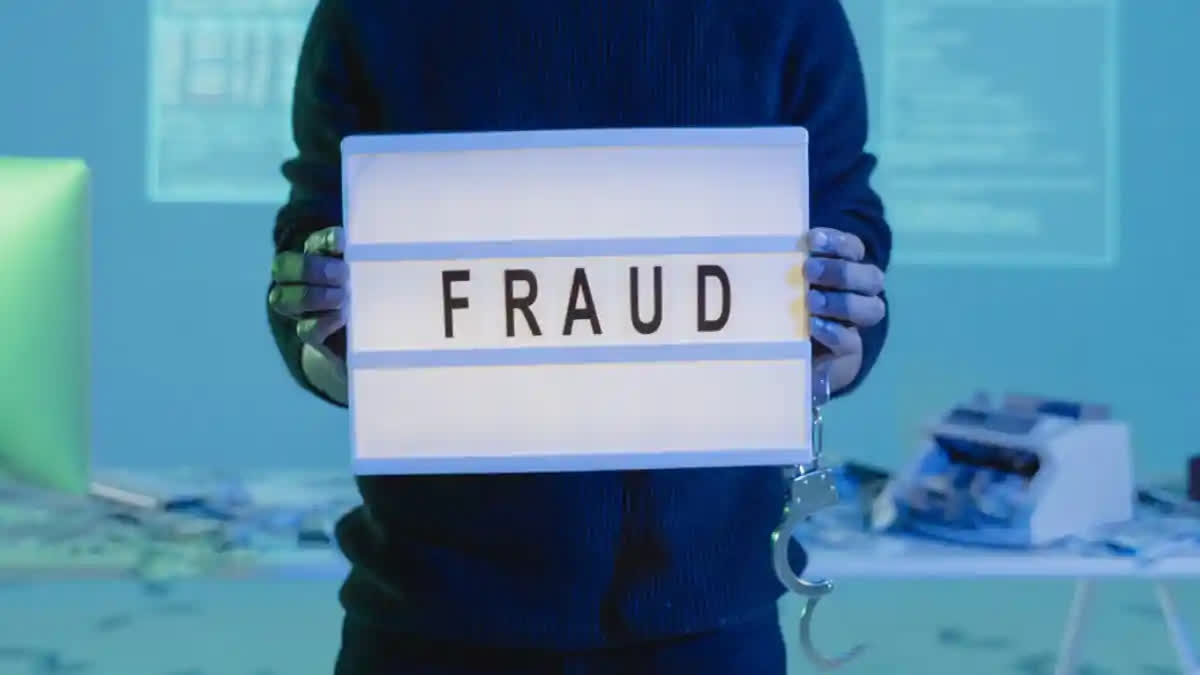New Delhi: In the backdrop of a massive awareness drive launched by law enforcement agencies, “digital arrest” the latest modus operandi of cybercriminals has become a major headache, especially for the cyber agencies mandated to fight cybercriminals. “Yes, we are aware of the matter where cybercriminals have been duping gullible citizens online by posing as fake police or fake CBI officers. We are looking into this issue,” said Nishant Kumar, director of the Indian Cyber Crime Coordination Centre (I4C), to ETV Bharat.
Kumar said that the government has launched 1930, a toll-free number to report all online financial frauds. “Citizen awareness is very much necessary so that cybercriminals can’t take them for a ride,” said Kumar.
Modus operandi
Digital house arrest is a new term coined to describe a situation where cybercriminals pretending to be police officers, TRAI officials, CBI or customs officials scare people and keep them hostage at home before proceedings to empty their bank accounts. Scammers are making fake Skype accounts pretending to be law enforcement officers and subsequently swiping all money from the bank accounts of the victims.
Latest incidents of "digital house arrest"
Since March, four different cases of "digital house arrests" have been reported from Delhi, Mumbai and Uttar Pradesh where cyber criminals duped different people, including retired personnel, to the tune of crores of rupees.
The first incident took place in Uttar Pradesh, the cyber-crime police of Varanasi arrested eight criminals involved in such digital house arrest fraud during the first part of April and also recovered cash Rs 3.70 lakhs, mobile phones, chequebooks and ATM cards.
As per police records, on March 8 Shampa Rakshit, a native of Sigra in Varanasi, received a call from a person, who identified himself as a telecom regulatory authority official, who charged Rakshit of involving in illegal activities with his number. Subsequently, another accused called Rakshit from another number identifying himself as an officer of Vile Parle Police Station in Mumbai and asked her to report to the police station. When Rakshit said that she stayed in Varanasi, the accused person asked her to download a Skype app. Subsequently, the accused took all details of Rakshit’s family and asked her to transfer money to a designated bank account. The accused also assured Rakshit that she will get all her money back once the investigation is over. In this way, she was duped of Rs 3.55 crore. Soon after the Varanasi police launched a manhunt and nabbed the eight accused, including the kingpin. Similarly, fraudsters duped people in Prayagraj, Mumbai and New Delhi.
Indian Cyber Crime Coordination Centre
Indian Cyber Crime Coordination Centre (I4C) was established by the Home Ministry to provide a framework and eco-system for Law Enforcement Agencies (LEAs) for dealing with cybercrime in a coordinated and comprehensive manner.
The I4C has recently launched a toll-free number 1930 to assist victims of financial fraud. “With the use of deepfake technology, such criminals change voices and images to convince the victims. On many occasions, using deepfake technology the criminals make WhatsApp calls to the victims,” said another official.
Read more: Retired Varanasi Teacher Loses Rs 3.55 Crore To Cyber Fraudsters, 15 Arrested So Far



